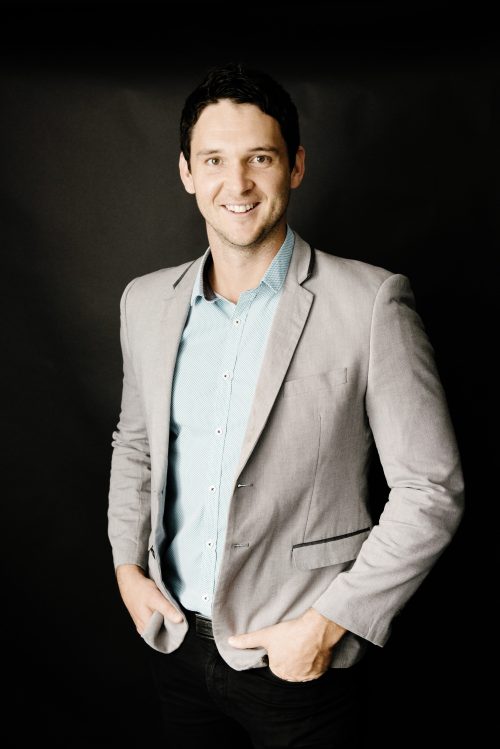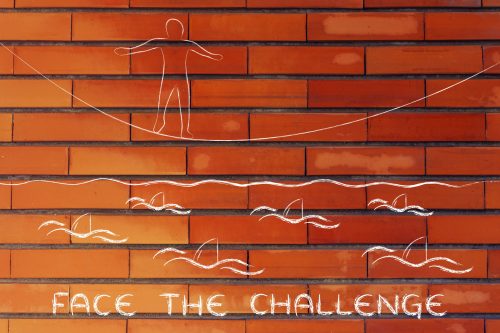9 Property Investing Secrets From Korean Martial Arts World Champion

The story you are about to read is one of those that shows us that there is no magic formula or a pre-established path to success in any area of our lives.
As simple as it may sound, all you need is to know what you want to achieve, have the drive to pursue it no matter what, and be resourceful about it.
If you are one of my readers, you probably know that to become a successful property investor the requirements are pretty much the same!
The main character in our story learned that lesson from his childhood experience in the martial arts world…
… his secret was being able to transfer those teachings to other aspects of his life, like his business.
So, here is a question to ask yourself:
What life experiences do you have that can become the key to your success as a property investor?
Keep that question in mind while reading Leon’s story, it may help you to uncover some valuable assets you didn’t know you have…
I'm pulling back the curtain, revealing my best kept Deal Finding Secrets!
- My Secret Search Strategies: Unlock hidden cracker deals no one else knows about
- Stop wasting hours on research: Simple setup automatically hunts down hot deals for you!
- How to use Australia’s top research tool anytime to turning boring research into an exciting treasure hunt
- Bonus: Free Research Tool Credits Included!
🎯 Don’t miss this!
Leon Weber hasn’t followed a typical path.
A martial arts World Champion, Leon dropped out of high school and had a variety of jobs, including Bluescope steel employee, online entrepreneur and property development project administrator, before finding his niche in property investing.
Today, Leon is one of Southeast Queensland’s most successful property investors—and his story is full of valuable lessons that apply to seasoned property investors as well as people who are just getting into the game.

Tae Kwon Do World Champion
Successful Property Investor
Leon shared nine lessons he learned on his personal and career journey that have helped him to become a successful property investor:
1. Use personal experiences to your advantage

From the age of six, Leon has been involved in Shotokan karate and tae kwon do. He received second, third and fourth degree black belts and won multiple World Championship titles.
This early exposure to martial arts taught him the value of hard work, having goals and “going for it,” he said.
“I’ve applied this drive in other areas of my life and business—and most recently, to property,” Leon said.
2. It’s OK to chart your own course

Leon said that he always had an interest in wealth creation and doing things differently. After dropping out of school at age 15 and leaving home, he took an interest in property at the age of 16 while living in an apartment that sold twice and doubled in value each time.
Because he wanted to get into the property game, he spent a few years going to night school to get his high school certificate and was accepted into university at age 19. However, he quickly realized that university wasn’t for him and dropped out after about four months.
I couldn’t handle the thought of going into debt and studying just to get a job that didn’t pay any more than the job I already had,” Leon said. “I just couldn’t see the end game.”
So, Leon began saving money and educating himself on wealth creation and property investing. He purchased his first house at age 21. He renovated the entire house in two years, ripping out walls, bathrooms and kitchens on his own—and figuring it all out as he went along.
“This was great experience, because I now understand all aspects of renovating a house,” he said.
3. Take advantage of opportunities

After a chance meeting on a plane on the way home from a seminar, Leon was offered a job with a property development company. Almost overnight, he went from being a Bluescope steel worker to a property development professional.
“They called me ‘the fireman’,” Leon said. “I put out fires all day across the company’s different projects and developments.”
The property development company did everything from small spec houses to hotels to shopping centres to 25-lot townhouse developments, Leon said, which gave him exposure to all aspects of property development.
He also experienced unpredictable “drama,” such as builders going broke, problems with weather and properties being condemned.
Although the job provided fantastic experience, Leon said that he learned that he never wanted to work for anyone else again.
4. Push through challenges

After living abroad for a year, Leon and his wife returned to Australia. Leon said that they didn’t think they would have a chance of obtaining finance for deals and the high prices in the Southeast Queensland suburbs seemed like a stumbling block.
Although Leon said these were not actual stumbling blocks (just ones that he made up in his head), he said that he is glad that they didn’t buy property at that time because the median price dropped by 40 percent shortly thereafter.
Instead, he and his wife decided to build up their other businesses so they could begin funding their own property deals.
Eventually, Leon decided that he wanted to train for the World Championships and began outsourcing most aspects of his other businesses. After he returned from the World Championships, he used the free time that he gained through outsourcing to get into the property game.
Leon faced a big learning curve when he started to look for and fund his own deals. Bridging the gap between working for a developer and doing his own deals was a huge challenge, he said.
I understood the property development game because I worked for the property development company, but doing your own deals is a totally different story,” he said.
“I see 40-, 50- and 60-year-olds who have worked in the business as architects and contractors who still don’t do their own deals. They can’t get their heads around being an entrepreneur.”
To solve this problem, he said he read as much as possible about property investing and attended every property seminar there was, including those hosted by Property Resource Shop.
5. Make a commitment

For Leon, property investing was more than just an interest; it was a commitment.
“I either had to make it work or go work for someone else again,” Leon said.
At one low point, Leon said that he tried to become a postie. But, at well over six feet tall, Leon was too big for the motorbike. In retrospect, Leon said that becoming a postie could have been the “death knell” for his property investing career.
But instead of giving up, he doubled-down and focused on property.
You have to make the decision to go forward and not treat property investing as a hobby or something that you do on the weekend,” he said.
6. Learn from experience

Today, Leon is skilled in all aspects of property acquisition. However, he experienced frustration early on due to what he believed was a lack of suitable deals—and his inability to land them.
Leon said he felt limited because he wasn’t sure that he was capable of taking on certain projects and had concerns about obtaining funding.
He also struggled with time management, sometimes taking 12 hours to work on a single spreadsheet, two days to analyse a deal and several more hours preparing a contract—which resulted in properties being gone before he even had a chance to make an offer.
“I was talking to someone and told him that I put in 45 offers this year,” Leon said. “The person I was talking to said that he put in 450 offers, which resulted in eight deals that were worth between $1 million and $4 million each.”
Eventually, he realised that his time was much better invested in looking for deals and that he needed to put in more offers.
“It wasn’t that there was a lack of deals,” Leon said. “It was a lack of effort to find deals and negotiate them.”
He also realized that the fundamentals of the property game don’t change. Leon said property investors need to focus on some core things, including:
- Understanding the value of a product in a specific area;
- Knowing what they can sell it for in the end;
- Mitigating risks and doing due diligence before going unconditional;
- Using time wisely; and
- Figuring out what offer is going to get the property under contract.
You can usually work out whether a property is a good deal on due diligence, and the more you practice, the quicker you can do it,” Leon said.
“There are so many online resources that you can confirm information quickly with most Councils.”
After years of experience, Leon now knows how to get his offer to the front of the queue. He said the key is to figure out what the owners and agents think the potential of the property is—or isn’t.
At minimum, his offers always include a finance clause and he never goes unconditional. He said that he can only remember one instance when he basically went unconditional—an off-market, low-risk subdivision property that was scheduled to be auctioned.
Leon also learned how to manage his emotions. He said he used to get upset for days after he lost a deal. Now, he knows it’s not the end of the world because there are other deals out there—and, he usually has five or six projects going on at the same time.
7. Get agents on your team

When Leon was first starting out, he said that his deals were a result of his searches. Now that he has a history of being a reliable investor who makes quality offers, a majority of deals come to him through agents whom he has worked with in the past.
Every couple of weeks, Leon said he searches for properties online and sends out about 30 inquiries on listed properties. About half of those agents will get back to him, which opens the door for him to ask what other sites they have available.
“After I build some rapport with an agent, I might ask, ‘What would you sell to your grandma to make her some money?” he said. “I’ve used this line several times, and it lowers their guard, gets a laugh and helps me to get good information.”
Leon also sticks to his word: If an agent helps him secure a property and he promises to let them resell the property after all work is completed, he makes sure he follows through.
If you respect an agent’s time and get them on your team, they will share information with you,” he said.
8. Be prepared for problems

Because every deal comes with unique challenges, Leon said you should eliminate as much risk as possible. But even when you do everything you can, you still run into problems, he said.
For example, Leon spent $40,000 on removing rubbish and renovating the kitchen and bathroom of a property that was initially valued at $50,000 above the purchase price. After the renovation, the same valuation company dropped the value by $50,000 and gave it an uninhabitable rating—even with a brand new kitchen and bathroom.
Because of this, Leon didn’t have financial approval. So, he went in search of alternate financing options, spent another $10,000 making minor repairs and had the property revalued. The property was then valued at $100,000 more with no risk rating and he ended up not needing the alternate financing arrangements.
My wife always says that everything is ‘figure-out-able,” Leon said. “But the more cash you have, the less of an issue those problems become.”
The more you get in the property investing game, Leon said, the more you realise that stressful situations come up. And, the game doesn’t support a “bury-your-head-in-the-sand” or a victim mentality, he said.
Leon said that he tries to stick with three to five deals at a time. He also maximizes what he can do on his own, but makes sure to leave an equity buffer to cover any unexpected problems.
“I sleep well at night if I always have $100,000 that I can pull out of somewhere,” Leon said. “I will also do a joint venture and split the profits on my next deal rather than going over the line.”
9. Tread carefully with joint ventures

By doing joint ventures, Leon said that he can get into deals that he wouldn’t be able to support on his own. Sometimes, he said, it’s better to take the quick and easy payday or split a deal than risk stretching yourself too thin.
“A guy I used to work with had a couple of great mottos: ‘Half a loaf of bread is better than no loaf of bread’ and ‘you don’t go broke making a profit’,” Leon said. “These are pretty simple mottos, but they are powerful and will often sway my decision on a project.”
Sharing the profits also means sharing the risks, he said. But Leon said he recommends working with a good solicitor to help you protect yourself and plan for the worst-case scenario.
Finding the right joint venture partners is another way to reduce risk and maximise your success.
Leon advises property investors to look for the same qualities that make them a successful property investor in their partners—such as emotional intelligence, problem-solving ability and commercial sense.
“I’d rather walk away from a deal than get involved with someone that I didn’t trust to handle the stresses or problems,” he said.
In this game, it’s not the deals that you do that keep you in the game—it’s the deals that you don’t do,” he said.
If experience truly is the best teacher, as the old adage says, property investors can learn much from Leon’s story.
Incorporating these lessons in your day-to-day investment strategy will put you on a path to wealth and success. And, if you need more support along the way, check out the community inside the Ultimate Property Hub Membership site for sound advice, networking opportunities and helpful information.
Looking for proven ways to create profits in the current market?
You'll find over 200 step-by-step case project studies, our renown Master Classes and Property Crash Courses… and heaps more!
Try the Ultimate Property Hub now –– it's free!


Really inspiring article. This reminds me of lessons I was neglecting and I am now looking at a current challenge from a new perspective with renewed energy. Thanks for sharing!
Thanks Lynda, awesome to see you applying this exceptional insights from Leon. Cheers, Matt